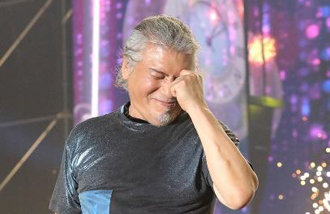French voters stop far-right party from winning, a system worth considering for S. Korea
French voters stop far-right party from winning, a system worth considering for S. Korea
Posted July. 09, 2024 07:54,
Updated July. 09, 2024 07:54
The New Popular Front (NFP), a cluster of several left-leaning parties, won in the second round of the French general elections on Sunday despite the prediction for the far-right party’s win. As many voters saw the result of the first round of voting with the far-right National Rally (RN) party leading the poll and voted for the competing party, the RN was pushed down to a third position, and the pan-ruling party, including the current ruling Renaissance party, took a second place.
The NFP, which includes the far-left La France Insoumise party, won the highest number of seats, 182. However, there is no guarantee that the NFP will produce the next prime minister as it has far fewer seats than the majority of 289, and there is not much difference compared to the 168 seats of the pan-ruling party and 143 seats of the RN. A member of the pan-ruling party might be named as a prime minister depending on the solidarity between parties.
In France, both general elections and presidential elections have two rounds of voting. In general elections, the parties that won over 12.5 percent of votes in the first round move to the second round. In presidential elections, the number one and number two candidates go against each other in the second round. The second round of presidential elections played a role in stopping far-right parties several times. In the 2002 presidential election, when Jean-Marie Le Pen of the Front National (FN), which is the former name of the RN, and Francois Mitterrand of the Socialist Party were competing in the second round, right-win voters who couldn’t bring themselves to vote for the FN voted for Mitterrand, a relatively moderate left-wing candidate, and brought him a win. Current President Emmanuel Macron also won against Marine Le Pen, a daughter of Jean-Marie Le Pen and the practical leader of the RN, in the second round of the 2017 and 2022 presidential elections.
For the latest general elections, the pan-ruling party and the NFP agreed to reduce the number of candidates in the race to create a bilateral match instead of a trilateral one. Celebrities, including the French national football team captain Kylian Mbappe, pop singer Aya Nakamura, and actor Marion Cotillard, called for voting against the RN. As a result, the far-right party was pushed down to a third position.
In a multiparty system, the final round of voting unites votes, reducing wasted votes. It encourages solidarity between moderate right and moderate left parties, preventing extreme parties from seizing power, and opens up an opportunity for a new moderate party to come to power, as in the case of Macron. The system is worth considering for South Korea as extreme parties gain power both globally and domestically.
Headline News
- S. Korea, US agree on defense const sharing-plan US presidential election
- Medical school quota discussions spark confusion 40 days before exam
- Zuckerberg surpasses Bezos to become world’s second richest person
- Son excluded from October national team due to thigh injury
- Ruing and opposition leaders launch campaigns ahead of by-election






